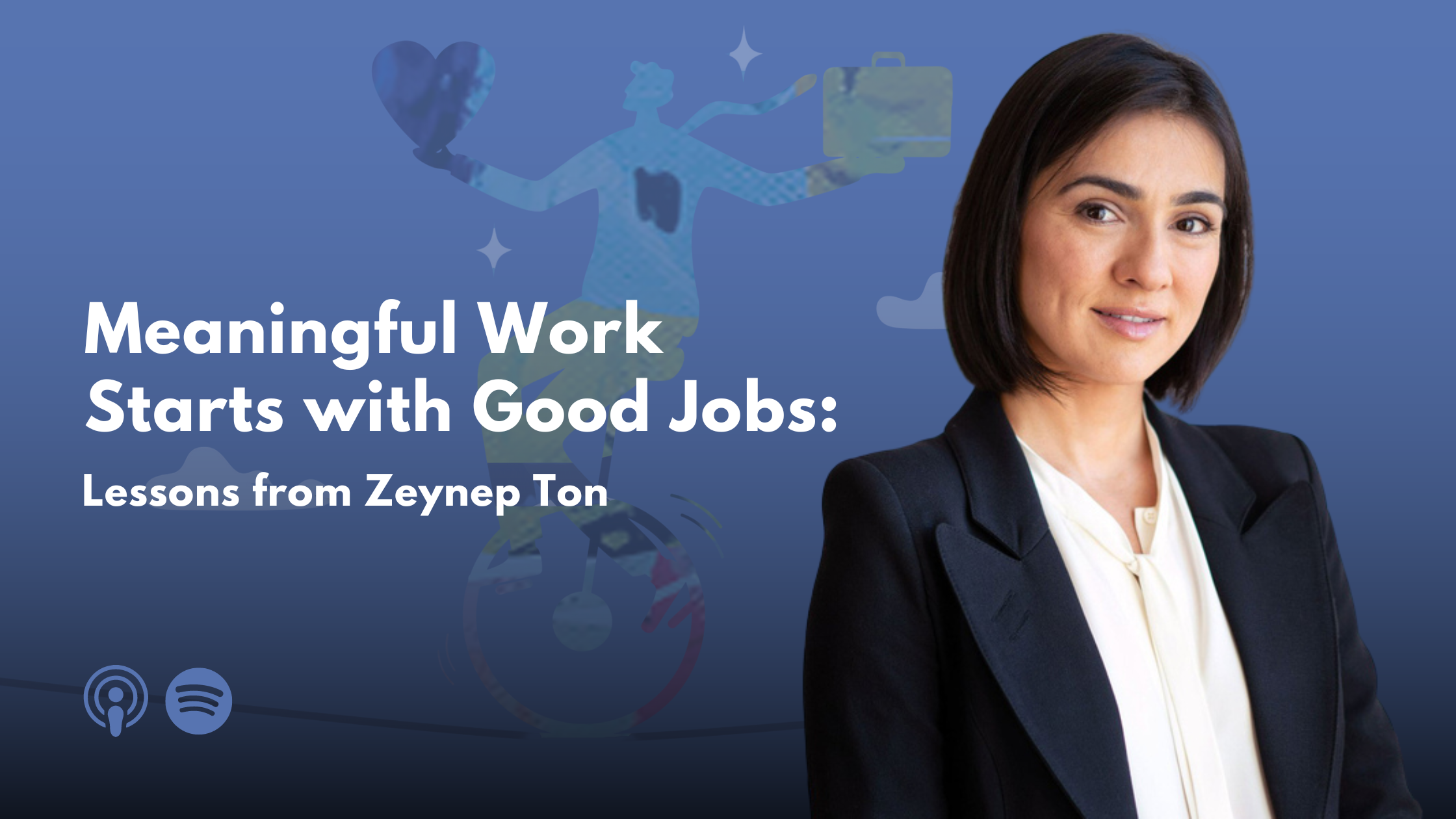In this episode of Meaningful Work Matters, we chat with Michael Steger, a luminary in the realm of meaningful work and life.
Steger, a Professor of Psychology and Founding Director of the Center for Meaning and Purpose at Colorado State University delves into the intricacies of finding coherence, purpose, and significance in our personal and professional lives.
Personalization of Meaning:
The podcast begins by emphasizing the highly individualized nature of finding meaning in life and work.
Steger points out that each person's journey to discovering purpose is shaped by their unique experiences, values, and aspirations. This personalization of meaning challenges the one-size-fits-all approach and encourages leaders to recognize and honor the diverse paths employees may take in their search for significance.
Dimensions of Meaning:
Steger introduces listeners to the four critical dimensions of meaning: coherence, purpose, significance, and mattering.
He explains that coherence involves understanding one's life and place in the world, while purpose is about having a sense of direction and motivation. Significance, on the other hand, relates to the feeling that one’s life has inherent value. A fourth dimension of mattering - related to how one adds value, has also emerged more recently in the literature.
This framework helps in demystifying the often abstract concept of meaning, also helping individuals and practitioners understand that there are multiple paths to meaning for all of us.
Steger argues that meaningful work should contribute positively to the broader venture of one's life, aligning with personal values and goals. This perspective shifts the focus from mere job satisfaction to a more holistic view of how work integrates into and enriches an individual's life.
Leadership and Meaningful Work:
The role of leadership in creating environments conducive to meaningful work is another focal point of the discussion.
Steger introduces the 'CARMA' model – a framework comprising clarity, authenticity, respect, mattering, and autonomy – as an evidence-based guide for leaders. This model emphasizes the importance of clarity of communication, authentic interactions, mutual respect, recognizing how each employee’s contribution matters, and allowing autonomy.
These leadership behaviors have been shown to cultivate workplaces where employees feel valued, understood, and connected to their work on a deeper level.
They have also been shown to increase an employee’s willingness to recommend their workplace as a great place to work to others.
Systemic Perspective on Meaningful Work:
It is important to take a systemic perspective to meaningful work. Steger stresses the need to consider the broader societal and organizational contexts that shape individual experiences of meaning at work. This underscores the complexity of the issue and the necessity for leaders and organizational practitioners to be aware of the various external factors that can impact the sense of meaning and purpose employees find in their work.
This episode of "Meaningful Work Matters" is filled with insights for anyone committed to creating a more meaningful work environment. The conversation not only sheds light on the nuanced nature of meaning in work but also offers practical strategies for fostering an enriching workplace. For organizational leaders and practitioners in positive psychology, Steger’s perspectives serve as a valuable guide in the quest to enhance the sense of purpose and fulfillment within their organizations.
Resources:
Michael Steger: Laboratory for the Study of Meaning and Quality of Life
Meaningful Work is about Much More than Purpose
Meaningful Work, Well-Being, and Health: Enacting a Eudaimonic Vision




























